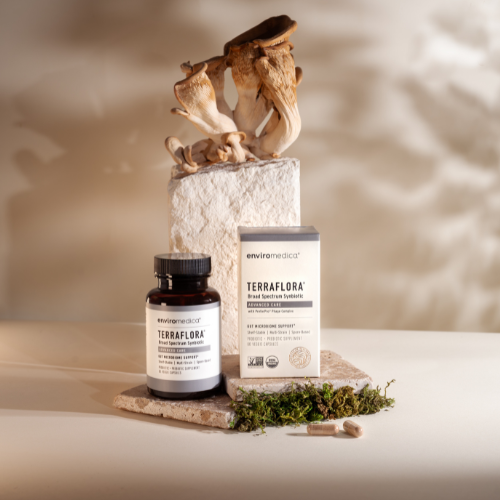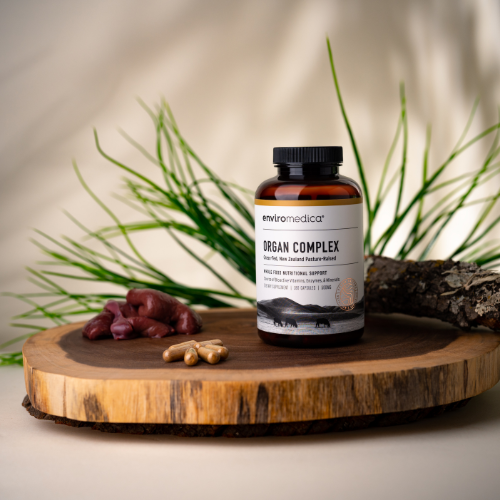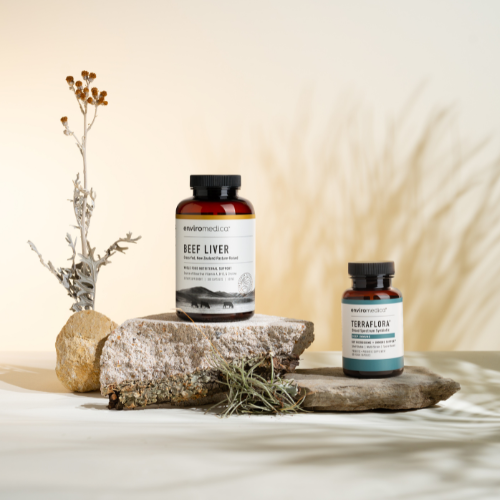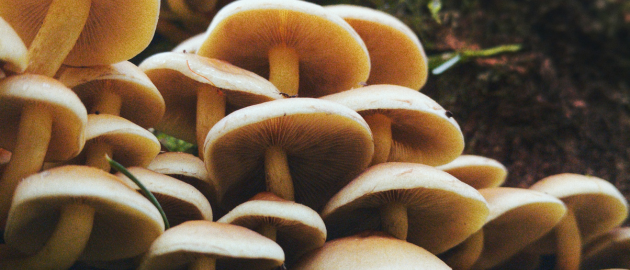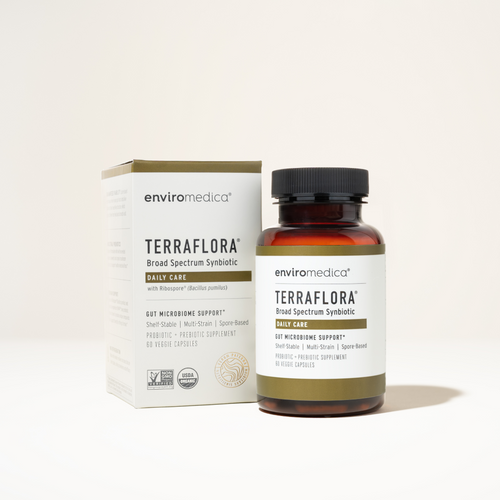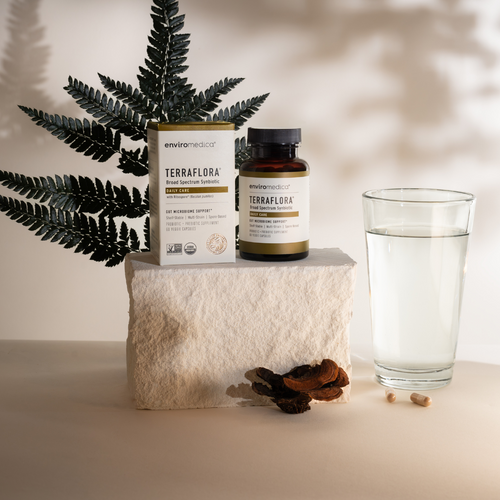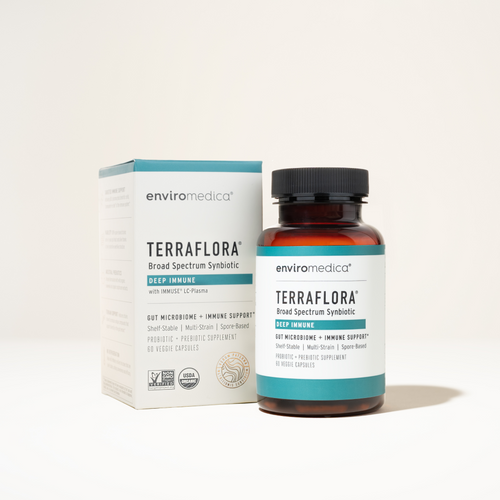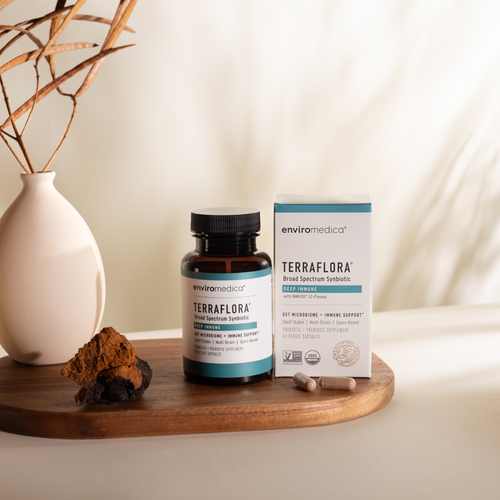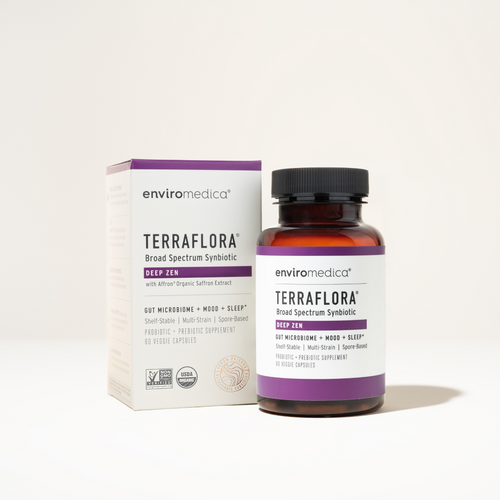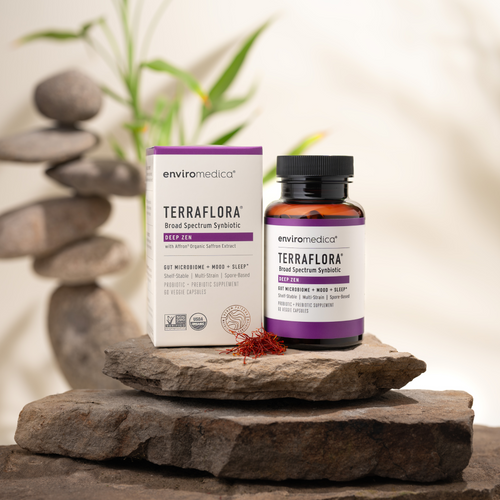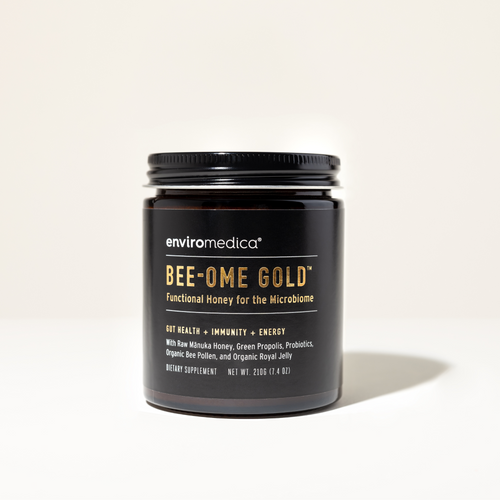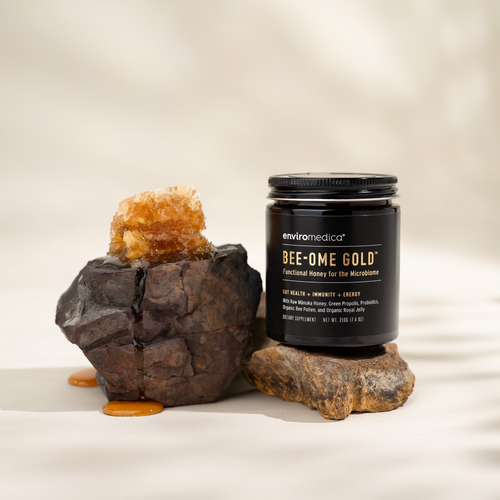Before Rewild Your Gut became a phrase, it was an observation.
A recognition that true health isn’t something we invent — it’s something we remember. It’s written in our biology, waiting for us to listen again.
At Enviromedica, this understanding shapes everything we build. Long before “rewilding” became a word used in wellness, it guided our approach to the microbiome: that the ecosystems within us are not separate from the ecosystems around us. The same patterns that sustain life in the soil, the ocean, and the forest sustain life inside the human body.
Why rewilding the gut matters
Every ecosystem — from forests to coral reefs to the human gut microbiome — depends on diversity for resilience. Forests collapse when they lose variety. So do coral reefs. So does the human gut.
Modern living — processed food, antibiotics, sterility — has narrowed that inner landscape. We’ve lost not only species of microbes, but the connection to the environments that once nurtured them. The result is a quieter loss: less adaptability, less vitality, less relationship with the living world that shaped us.
To rewild your gut is to reverse that loss. It’s to restore microbial diversity — to rekindle the dialogue between body and Earth. It’s a return to balance — to our natural state of interdependence.
Research continues to affirm the connection between microbial diversity and human health.1,2
A philosophy of connection
When we began formulating Terraflora®, we didn’t start with what was trending — we started with what was missing. We looked back to the ancient relationship between soil and self, and forward to what modern science was revealing about microbial ecology and microbiome restoration.
Spore-based probiotics — nature’s most resilient microorganisms — became our foundation. Wild-harvested prebiotics from seaweed and mushrooms became our nourishment. Together, they reflect the same balance found in thriving ecosystems: stability through diversity, simplicity through complexity.
That’s what it means to rewild your gut. Not to add more, but to restore what’s essential.
The quiet power of return
Rewilding isn’t rebellion. It’s remembrance.
It’s a shift away from control and toward cooperation — from isolation to relationship.
It asks us to participate in nature, not dominate it. And in doing so, it reveals something deeper: that health has never been about fixing what’s broken, but about feeding what’s alive.
More than a phrase
We see Rewild Your Gut echoed more often now — in conversations, in wellness circles, in products that speak of diversity and connection. We welcome it. It means the message is moving, that people are remembering.
But for us, this philosophy is not new, not borrowed, and not fleeting. It’s the foundation of everything we make — every formulation, every philosophy. Because the body already knows what to do — it just needs the right environment to do it.
That’s the promise of rewiliding your gut. Not a trend. A truth rediscovered.
Rewild Your Gut is a philosophy of living biology — a reminder that the body and Earth were never meant to be separate. From soil to self, we are nature continuing its own design.
